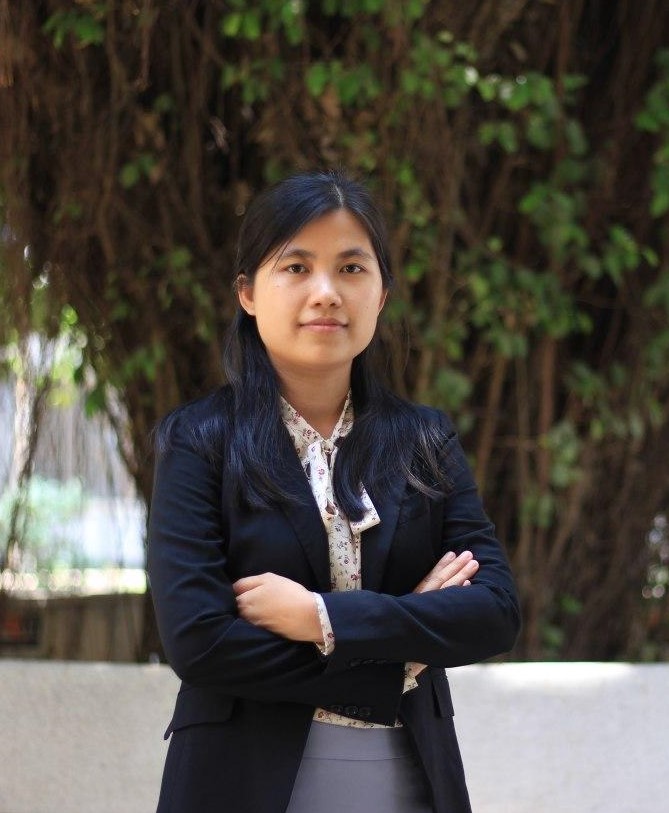
Dr. PENG Chanthol is currently a lecturer and researcher of the Faculty of Chemical and Food Engineering, Food Technology, and Nutrition Research Unit of Institute of Technology of Cambodia. She graduated Doctor of Engineering in Life Science and Technology from Tokyo Institute of technology, Japan, in September 2019 and a Master’s Degree in Sustainable Management of Food Quality from the University of Montpellier, France, in September 2015.
Her researches mainly focus on disease prevention. Firstly, she is researching on bacteriophage (phage), which is a virus that infects bacteria. Phage is a potential candidate for use as an alternative therapeutic agent to the antibiotic to control antibiotic-resistant pathogens. She and her research team isolated and studied a phage that infects a wide range of clinical strains of Methicillin-resistant Staphylococcus aureus, severe human pathogens, and challenging to treat by the antibiotic. Her finding is useful for the future development of phage therapy to tackle antibiotic-resistant pathogens and save lives from its infection. There is a lot more to discover phage’s potential. So, she is continuing on phage research by collaborating with local and international researchers. Since antibiotic-resistant bacteria can transmit to humans through foods and water, she additionally researches on how to improve food and water quality to minimize and prevent food and waterborne diseases. Specifically, she is developing a low-cost water treatment with her team to help to provide clean water to a floating villager of Tonle Sap Lake (the largest freshwater lake of South East Asia. However, the lake is under threat due to pollutions. Floating villagers use the polluted lake water directly for their daily life and pose a severe health risk. The project outcome will help to ensure clean water for around 1.2 million people living on the lake. The project is supported by the Japan International Cooperation Agency (JICA) and the Japan Science and Technology Agency (JST) under the project title “Establishment of Environmental Conservation Platform of Tonle Sap Lake.” During her studies, she published five papers and a book chapter as first and co-author as well as attending conferences. She wrote a book chapter with her team entitle “Environmental Changes in Tonle Sap Lake and its Floodplain.” It gives insight for researchers and policymakers to tackle the water environmental challenges for better livelihood in Tonle Sap Lake and other regions facing a similar problem.
Besides being a researcher, she is an educator and advisor. Most of her students are female. She would like to promote women scientists in Cambodia and the region. Females can also lead and contribute to solving a problem for a better community. Her goal is to contribute to disease prevention through researches and education.
